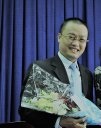








Section Collection Information
Dear colleagues,
Cultural anthropology studies the interpretation and modeling of human cultural variation. Inside different eras and territories, cultural anthropology also establishes determinants of human behavior. Among the main determinants, “identity”, “values”, and “patterns” occupy a special theoretical place. Therefore, “cultural difference” appears especially important concept. The peculiarity of the anthropological approach lies precisely in the fact that the generalization of human culture achieved by studying the paradigms of its differentiation.
The modern world is increasingly returning to traditional divisions of identities. Globalist approaches to “synthesis of identities” give way to political necessity and economic expediency. The military conflicts of recent years have recreated traditional concepts of “historical territory rights”, “expand space rights”, and “restoration of historical justice”. Many politicians support not only “democracy values” but also “the rights of nations”. So, their ideals are opposed by supporters of leftist “internationalism”. In any case, the current political mainstream centered on the struggle for human identity.
From the cultural anthropology point of view, delimitation remains the only way to comprehend a holistic phenomenon. The struggle of political movements and various cultural traditions for identity leads to the actualization of national contradictions. The most important practical scope of cultural anthropology is to explain the sources and origins of the contemporary “national question”. In addition, cultural anthropology is obliged to suggest theoretical ways out of the crisis of ideologies.
To start a discussion, we are interested in wide range studies of controversial issues and definitions. Key points of the proposed Section Collection:
1. “Cultural identity” and/or “identity of culture”.
2. Universal values of culture and the “national question”: past and present.
3. Ethnic identity: patterns and archetypes.
4. “Historical rights” of nations: time, space, culture, etc.
5. The political technology of “restoring historical justice”.
6. Cultural engineering: historical retrospective and current practices.
7. Ideological dimension of contemporary cultural anthropology.
8. Culture and ideology: coexistence in a no stability world.
We are open to the most diverse thematic papers in the cultural anthropology field. Research articles and reviews are welcome.
We are looking forward to receiving your contributions.
Section Editor
Dr. Viktor Melnyk


